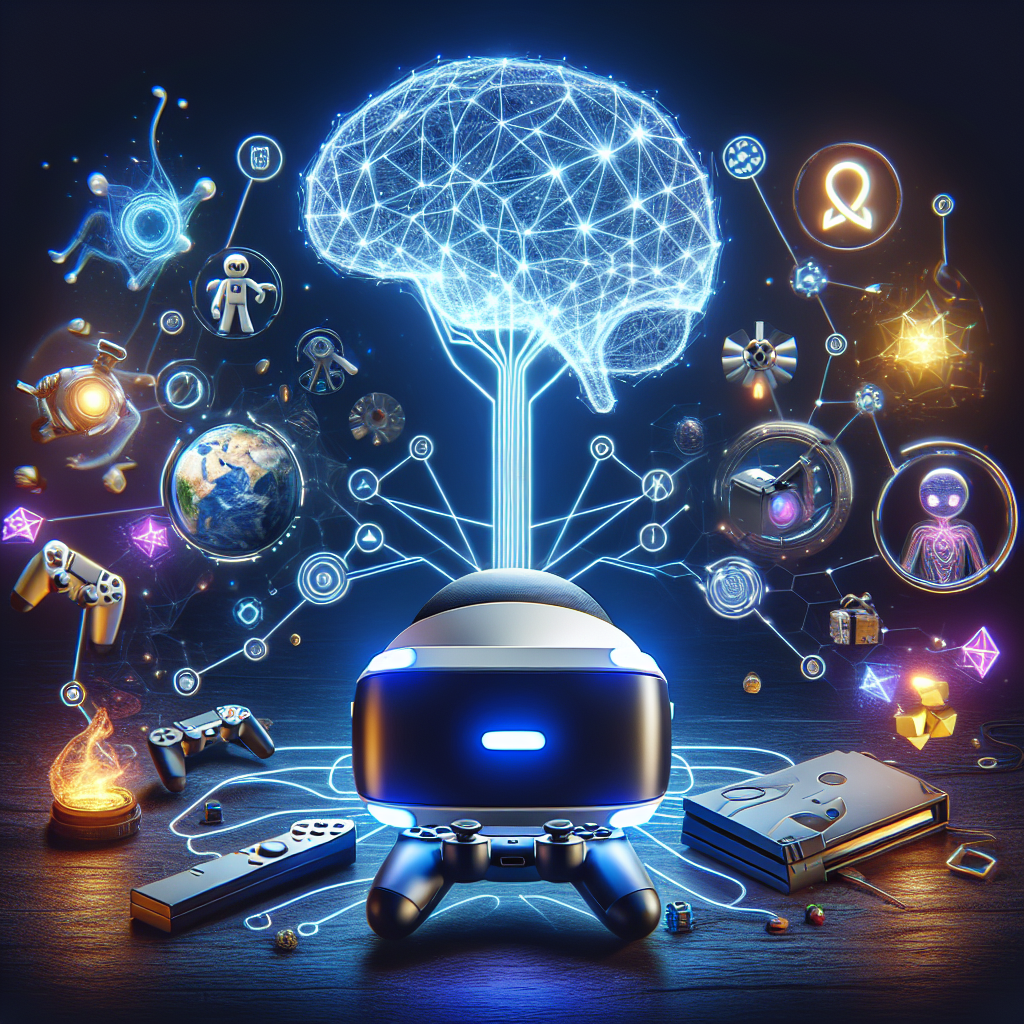Introduction
Virtual reality (VR) gaming has been steadily growing in popularity over the past few years, providing players with immersive and interactive experiences like never before. With the rapid advancements in technology, the integration of artificial intelligence (AI) in VR gaming has become a game-changer, revolutionizing the way games are played and experienced. In this article, we will explore the role of AI in virtual reality gaming and how it is shaping the future of gaming.
AI in Virtual Reality Gaming
Artificial intelligence, in the context of virtual reality gaming, refers to the use of machine learning algorithms and intelligent systems to enhance the gaming experience. AI can be used in various ways to create more realistic and dynamic virtual worlds, improve gameplay mechanics, and provide players with personalized experiences.
One of the key ways AI is utilized in VR gaming is through the creation of intelligent NPCs (non-playable characters). NPCs are characters within the game that are controlled by the game’s AI rather than by the player. By incorporating AI into NPCs, developers can create more realistic and dynamic interactions between players and characters, making the gaming experience more immersive and engaging.
AI can also be used to enhance the gameplay mechanics of VR games. For example, AI algorithms can be used to create more challenging and adaptive enemies, providing players with a greater sense of accomplishment when they defeat them. Additionally, AI can be used to analyze player behavior and adjust the difficulty level of the game accordingly, ensuring that players are constantly challenged and engaged.
Another way AI is changing the landscape of VR gaming is through the creation of procedurally generated content. Procedural generation is a technique used by developers to create game content, such as levels, environments, and quests, using algorithms rather than manual design. By incorporating AI into procedural generation, developers can create vast and dynamic virtual worlds that are unique to each player, providing endless possibilities for exploration and discovery.
AI can also be used to enhance the social aspects of VR gaming. By analyzing player behavior and preferences, AI systems can match players with similar interests and skill levels, creating a more personalized and enjoyable multiplayer experience. Additionally, AI can be used to create more realistic and interactive social interactions within the game, such as intelligent dialogue systems and emotional responses from NPCs.
FAQs
1. How does AI enhance the immersion in VR gaming?
AI enhances immersion in VR gaming by creating more realistic and dynamic interactions between players and NPCs, improving gameplay mechanics, and providing personalized experiences. By incorporating AI into virtual reality games, developers can create more immersive and engaging worlds that respond to player actions and provide a greater sense of presence.
2. What are some examples of AI in VR gaming?
Some examples of AI in VR gaming include intelligent NPCs, procedurally generated content, adaptive enemies, and matchmaking systems. AI is used in various ways to enhance the gaming experience, from creating more realistic and dynamic characters to providing players with endless possibilities for exploration and discovery.
3. How is AI changing the future of VR gaming?
AI is changing the future of VR gaming by revolutionizing the way games are played and experienced. With the integration of AI, virtual reality games are becoming more immersive, dynamic, and personalized, providing players with new and exciting experiences that were not possible before. AI is shaping the future of gaming by creating more realistic and interactive virtual worlds that respond to player actions and preferences.
4. What are the challenges of integrating AI into VR gaming?
One of the challenges of integrating AI into VR gaming is ensuring that the AI systems are sophisticated enough to provide a truly immersive and engaging experience for players. Developers must also consider the ethical implications of AI in gaming, such as privacy concerns and the potential for bias in AI algorithms. Additionally, integrating AI into VR gaming requires a significant amount of resources and expertise, making it a complex and time-consuming process.
Conclusion
The integration of artificial intelligence in virtual reality gaming is revolutionizing the way games are played and experienced, providing players with immersive and interactive experiences like never before. AI is being used in various ways to enhance the gaming experience, from creating more realistic and dynamic NPCs to procedurally generating content and improving gameplay mechanics. With the rapid advancements in technology, AI is shaping the future of VR gaming, creating more immersive, dynamic, and personalized virtual worlds that respond to player actions and preferences. As AI continues to evolve, we can expect to see even more innovative and exciting developments in the world of virtual reality gaming.

